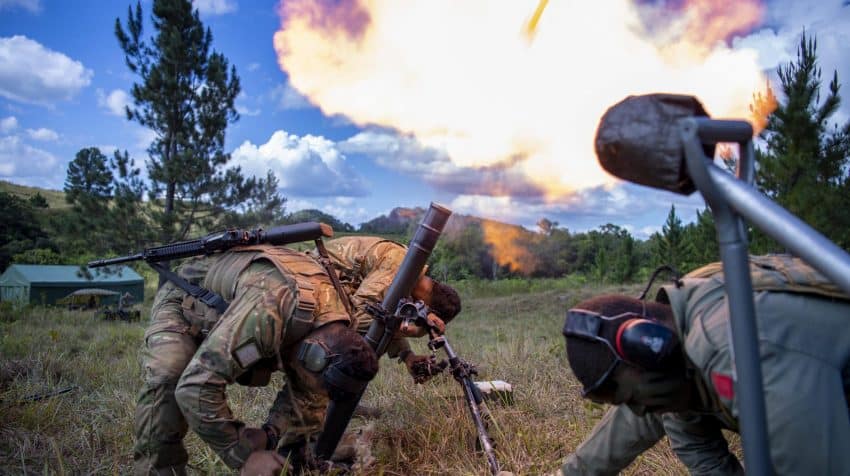A military exercise in Fiji involving the United States, Britain, Australia and New Zealand ends this week as the traditional allies counter China’s growing influence in the region.
The 11-day Exercise Cartwheel in Fiji began September 12 and ended today.
U.S Navy Commander Victor Lange said the name of the exercise originated from Operation Cartwheel during World War II, in which the U.S fought alongside the militaries of Australia, New Zealand and Fiji — then a British colony — to neutralise the Japanese base at Rabaul in Papua New Guinea.
Chinese Foreign Ministry spokesperson Wang Wenbin said China had “no objection to normal defence cooperation among the countries concerned.”
“But the cooperation should not be directed at third parties,” Wang told reporters in Beijing.
The United States has promised greater engagement with the South Pacific after China and the Solomon Islands signed a bilateral security treaty in May that has raised concerns of a Chinese naval base being established in the region.
U.S Vice President Kamala Harris told a South Pacific leaders’ summit in Suva in July that the United States will open new embassies in Tonga and Kiribati. She also flagged a tripling of U.S. funding for fisheries assistance to US$60 million.
Australia’s new government, elected in May, is also taking steps to increase its engagement with its island neighbours.
The government plans to establish an Australia-Pacific Defense School to train neighboring armies in response to China’s potential military presence on the Solomon Islands.
Meanwhile, the New Zealand Defence Force (NZDF) undertook 81mm mortar demonstrations in the Nausori Highlands of Fiji as part of the Exercise.
A total of 55 combat soldiers from New Zealand’s 1st Brigade in Linton and Burnham had participated, and the training included demonstrations of sustained fire machine guns, section attacks and ambushes, reacting to enemy indirect firing and ethical decision-making scenarios.
NZDF Land Component Commander Brigadier Hugh McAslan said the exercise was very important for the New Zealand Army’s professional relationships and building interoperability with Pacific partners.
“We have long standing and close relationships with military partners in the Pacific and we really value opportunities like this one to train alongside them. This exercise also provides opportunities for our people to immerse themselves in Fijian culture, build strong professional and personal relationships with our Pacific military whanau, as well as train in an environment that is different to New Zealand,” he said.
Major Atonia Nagauna of the Fiji Infantry regiment, Third Battalion, says today, Pacific nations face challenges that require collective action.
“When I talk about threats, I talk about natural disasters, I talk about illegal fishing, I talk about other traditional non-state actors which try and destabilise this part of the world.
“We work together so we feel we are not alone and they also treat us as equal partners in this,” Nagauna said.
The Pacific landscape is rapidly changing, and while climate change is a big issue, its China’s growing influence in the region that is causing concern.
Tony Greubel, of the US Embassy in Suva, says it’s why the US-led training exercise in Fiji is so important.
“Australia and New Zealand, Fiji – just like all the other Pacific nations – share our values for democracy and the rule of law for a free and transparent Indo-Pacific,” he said.
It’s the first time in decades that this type of military exercise has been held in the Pacific and involves around 270 military personnel training in jungle and urban environments.
